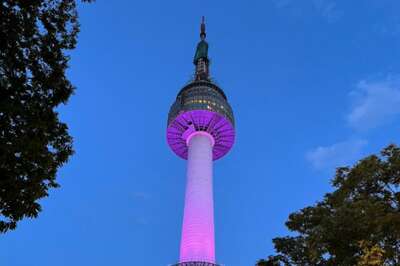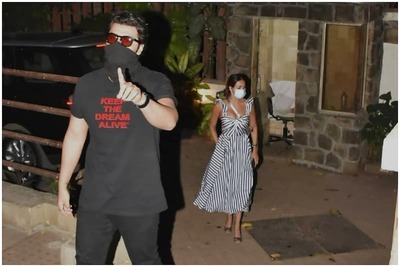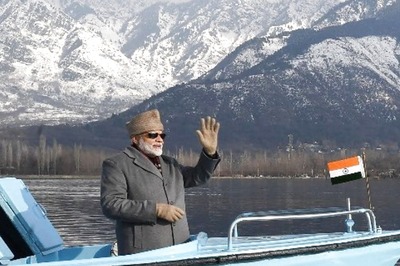
views
Bengaluru: Sometime in July last year, social media circles in Bengaluru was full of heated debates and discussions on imposition of Hindi by the Centre. The immediate trigger was Hindi signage in the Bengaluru Metro. Initially, it was restricted only to the virtual world and the authorities chose to look the other way. But the campaign gained momentum in a month and the Siddaramaiah government was forced to react.
After local Kannada TV channels made it big, the state government wrote to the Centre informing it that it will remove Hindi signage from all the Metro stations. It made Siddaramaiah a hero among the Kannada activists – both online and offline. After that #StopHindiImposition has been one of the top trending hashtags on Twitter and Facebook.
Contrary to the popular belief, it was not a sudden protest. The new movement for Kannada is now being led by young, well-educated professionals with a world view. Unlike the traditional activists, dubbed as fringe by the mainstream media, these activists are mostly invisible. They are methodical and want to fight for the primacy of Kannada in Karnataka through democratic means.
For the first time in the history of Karnataka elections, these young activists are demanding that all three major players in the state – the Congress, the BJP and the JDS must come out with a manifesto for Kannada. Voluntary organisations and fourms like Munnota, Banasavi Balaga, Kannada Grahaka Koota and a few others have been systematically fighting to safeguard the interests of Kannada and Kannadigas for the past few years.
Vasanth Shetty, one of the leading activists who runs “Munnota”, said that their efforts have yielded positive results in the last two-three years. Shetty, who works at a technology major, said “Kannada movements in the state, especially in state capital Bengaluru, were defamed by some vested interests. There may be some truth in the argument that some are using it to make money. But a strong movement is a necessity of our times. We realized it and started our own movement to reach out to the Kannadigas who were keeping themselves away from traditional activists. Our aim was to explain how Kannada is being systematically killed or sidelined in Bengaluru and the central government sponsored Hindi is making inroads. Now there is awareness among the educated people. It is no longer a symbolic protest. More and more people are joining us and we will continue our fight till Kannada gets its due in Bengaluru and at the national level”.
Shetty disagrees with the people who call it an anti-Hindi movement. He explains that it is only against the imposition of Hindi over Kannadigas and they have nothing against Hindi language.
“Some vested interests are calling it anti-Hindi movement. That is wrong. What we want is language equality. Hindi alone should not get the privileges other languages also rightfully deserve. There is no need to impose Hindi over non-Hindi states. Let them promote Hindi in Hindi speaking states. We have no objection to it. Do they promote or use Kannada or Tamil in Hindi states? No. Same logic should apply to Karnataka or Tamil Nadu,” Shetty said
Unlike the typical, old time Kannada activists who carry a Kannada flag in their hand, the new age Kannadigas are fighting the language war with mobile and other high-end gadgets in their hand. They have created WhatsApp groups, Facebook pages, Twitter accounts and websites to unite the people to further their cause.
Arun Javagal, another prominent activist who is also from IT background, told News18 that the activists who hit the streets for Kannada are also equally important and the role of the organisations like Karnataka Rakshana Vedike (KaRaVe) can’t be ignored. “What we do using new technology to create awareness and build pressure on the government will be carried forward by these groups. They hold protests, organise public meetings, lead delegations to the government etc. Actually we complement each other,” he said.
The activists claim that their continuous, sustained campaign has forced private airlines, consumer goods companies, private banks, service sector industries etc to change their attitude towards Kannada. “Many of them are now using Kannada as one of their official languages of communication. We want the government of India to understand this and stop imposing Hindi over us,” Javagal said.
Their movement has the backing of Kannada Development Authority (KDA) chairman S G Siddaramaiah, eminent Kannada writers Dr Chandrashekhara Patil, famous cine stars Prakash Raj, Prakash Belawadi and many others.
Chief Minister Siddaramaiah, who is passionate about Kannada language and culture, has also realised the impact of the movement and has taken many pro-Kannada decisions like no Hindi signage, reservation for Kannadigas in government jobs, Kannada flag, NEET exams in Kannada etc. One more change is increased usage of Kannada in social media engagements by the government and top politicians.
Will Kannada play an important role in the Assembly elections in the changed scenario? Many locals say it can and it will.
Veteran journalist Ramakrishna Upadhya feels Kannada has already become an election topic. He said, “Even the politicians know that they can’t ignore the legitimate demands of Kannada activists. They are taking these people seriously. All political parties must specify what they are going to do for Kannada if they come to power”.
The BJP, which initially tried to brand the activists as Congress agents, has been keeping quiet after realising the seriousness of the issue. Its CM face B S Yeddyurappa has instructed party cadres and leaders not to make negatives comments on Kannada related issues.
“One more lie is being peddled that Bengaluru is no longer a Kannadiga dominated city. It is a pure lie. The people who want to turn Bengaluru into another Mumbai are behind it. Bengaluru still has over 60% people whose mother tongue is Kannada and over 75-80% people here speak or understand Kannada. They are slowly realising the threat posed by Hindi. If they unite and openly declare that their vote is only for the parties which genuinely fight for Kannada, all will fall in line,” said Chandrashekhara Patil, who had unsuccessfully contested on a Kannada platform in the 2008 Assembly polls.
Along with the usual roads, water, housing, healthcare etc, Kannada is the new demand that those who want to rule Karnataka have to handle with care.


















Comments
0 comment